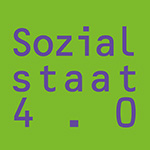
13. May 2016
by shaunss
1 Comment
Wissenschaftliche Tagung am 26. und 27. Mai 2016 in Bremen
Leitung: Frank Nullmeier & Sebastian Haunss, Universität Bremen
Die Digitalisierung der industriellen Produktion sowie im Dienstleistungssektor hat weitreichende Folgen auch für die bestehenden Strukturen und Institutionen der Sozialpolitik. Auf der einen Seite gehen veränderte Wertschöpfungsmodelle mit veränderten Arbeitsverhältnissen einher, die vermutlich in der Regel weniger stabil, dauerhaft und abgesichert sein werden als die Normalarbeitsverhältnisse der analogen Ökonomie, die allerdings inzwischen auch dort schon längst keine Regelarbeitsverhältnisse mehr sind. Auf der anderen Seite zieht die digitale Ökonomie ihre Produktivität aus der massenhaften Verfügbarkeit von Daten, die wiederum zu einem relevanten Teil persönliche Informationen über einzelne BürgerInnen enthalten. In beiden Fällen ist das Wissen über die Folgen dieser Prozesse für die bestehenden sozialpolitischen Arrangements und zukünftige sozialpolitische Modelle noch kaum erforscht. Continue Reading →







